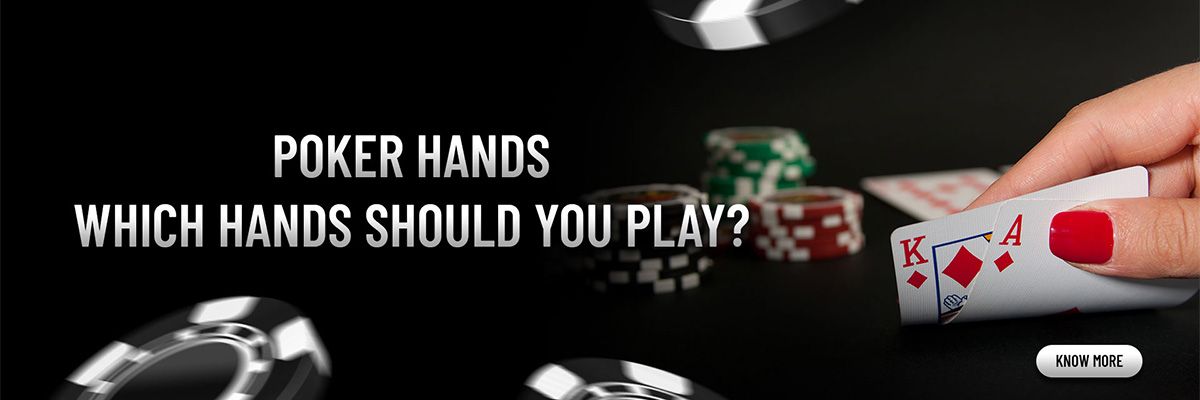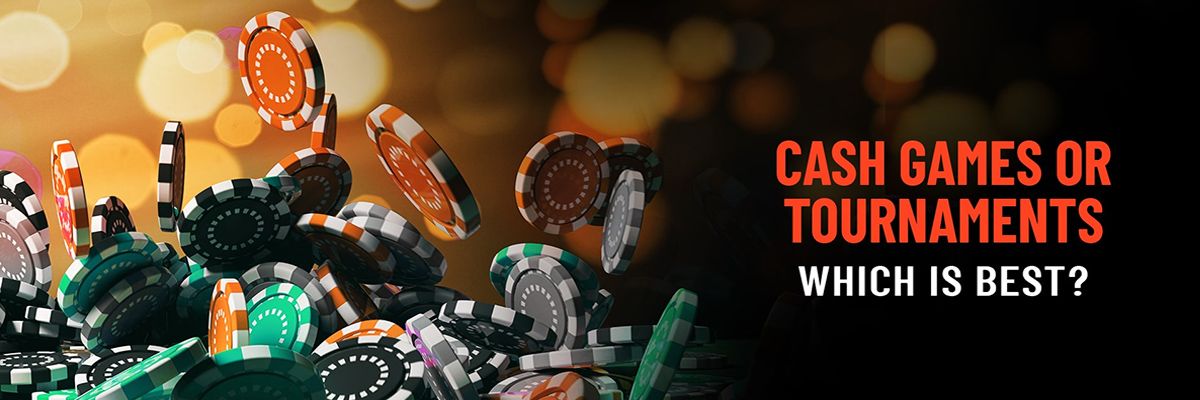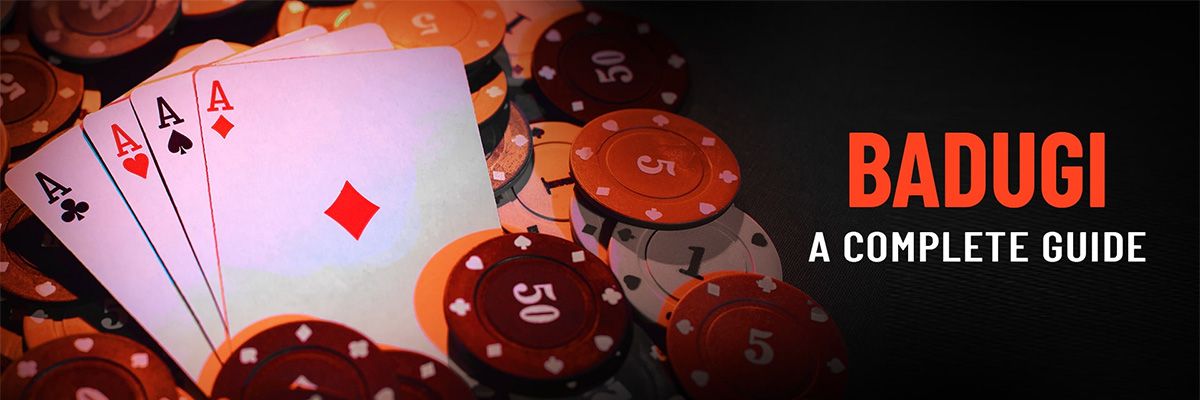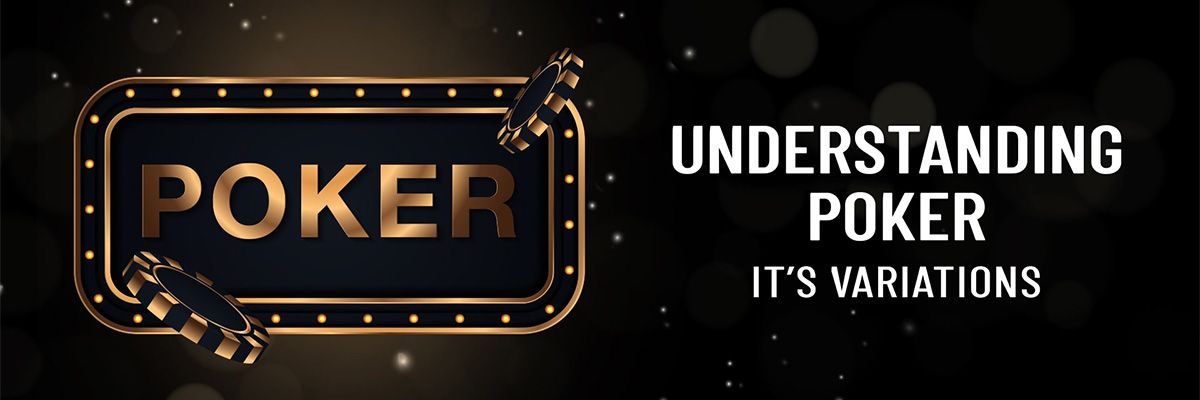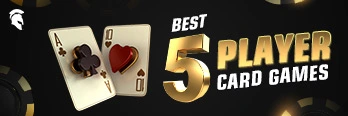An Introduction to the Starting Hands in Poker
Poker players often talk about their hands, and whether they’re good or losing. When they do this, they’re not talking about their limbs with the five fingers attached. What they are discussing is an important aspect of poker. They’re talking about poker starting hands. In games of poker, especially games like Texas Hold’em, players are dealt with certain cards before the flop. These cards are called starting cards. Usually, all the players at the table are dealt two cards, each, which they must keep secret and not show to their opponents. Think of it like hiding your answers on an important exam.
Now players are often dealt cards that aren’t the best, but they remain hopeful. They often think that they can defeat the other players at the table if they can stick it out, but such dreams are, well, just dreams. Poker is a mathematically sound game, and unfortunately, you have to play the game with the cards you’ve been dealt. No amount of hope can turn a bad card into a winning one. And honestly, this kind of gaming strategy is not very profitable, either. Refusing to accept the reality of the cards does not lead to winning cash. Now all of this foreboding information must have you wary of playing poker games. But you don’t need to sweat it out. We’ve got all the information you need on the best starting poker hands; what they are and the math to back it up.
What are the Best Starting Poker Hands?
While determining if the hand you’ve received in good or not, the first question to consider and ask yourself is if the hand you have is capable of playing against the type of hand your opponent is holding. You can make an educated guess about your opponent’s hand by looking at their betting pattern or the possible combinations available and also their physical tells. Doing this simple exercise can save you from a lot of unfortunate losses.
If this move seems like something too advanced for you, then you’re not alone. This kind of thinking is developed after a lot of practice. Meanwhile, you can look at the game more logically and focus on some of the more established facts of the game. In poker games like Texas Hold’em, which is one of the most popular games played, you can look at the number of starting hands available. In such a game there are 169 starting hands, which can be dealt to you. Out of these cards, only some are cards that can be played and those too can be played at different times during the game.
From paired and suited cards, which are cards that are combined due to a similar rank or suit, the following cards can be played in the following ways:
- In Any Position: A-A, K-K, Q-Q, J-J, T-T, 9-9, 8-8, 7-7, A-K, AQ, A-J, A-T, K-Q, K-J, K-T, Q-J, Q-T, J-T, J-9, T-9.
- In Mid/Late Position: 6-6, 5-5,A-9, A-8, A-7, A-6, K-9, Q-9, Q-8, J-8, T-8, 9-8
- In Late Position: 4-4, 3-3, 2-2, A-5, A-4, A-3, A-2, K-8, K-7, K-6, K-5, K-4, K-3, K-2, J-7, T-7, 9-7, 9-6, 8-7, 8-6, 7-6, 7-5, 6-5, 5-4
- Cannot be Played: Q-7, Q-6, Q-5, Q-4, Q-3, Q-2, J-6, J-5, J-4, J-3, J-2, T-6, T-5, T-4, T-3, T-2, 9-5, 9-4, 9-3, 9-2, 8-5, 8-4,8-3,8-2,7-4,7-3,7-2,6-4,6-3,6-2, 5-3,5-2, 5-2, 4-3, 4-2, 3-2
Similarly, a chart exists for unsuited cards, as well, which is as follows:
- In Any Position: A-K, A-Q, A-J, A-T, K-Q, K-J
- In Mid/Late Position: K-T, Q-J, Q-T, J-T
- In Late Position: A-9, A-8, A-7, K-9, Q-9, J-9, J-8, T-9, T-8, 9-8, 9-7, 8-7
- Cannot be Played: A-6, A-5, A-4, A-3, A-2, K-8, K-7, K-6, K-6, K-5, K-4, K-3, K-2, Q-8, Q-7, Q-6, Q-5, Q-4, Q-3, Q-2, J-7, J-6, J-5, J-4, J-3, J-3, J-2, T-7, T-6, T-5, T-4, T-3, T-2, 9-6, 9-5, 9-4, 9-3, 9-2, 8-6, 8-5, 8-4, 8-3, 8-2, 7-6, 7-5, 7-4, 7-3, 7-2, 6-5, 6-4, 6-3, 6-2, 5-4, 5-3, 5-2, 4-3, 4-2, 3-2
In the beginning, while you are practicing and learning, it is smarter to stick to the guidelines given above. In doing so, you will fold more games than you’ll play, but in the long run, that is more profitable. It’s smarter to not a play a losing game, than playing such a game and losing the money you bet, as well. This kind of playing will teach you the basics and give you enough time to play games where you can hone some card analyzing skills, without losing games and losing money, too. You can think of this kind of playing like learning to ride a bike with the training wheels still on. It’s smart because it allows you to practice and gain confidence, without harming yourself, too much.
What is Equity?
Now that you’re a little familiar with the basics of poker starting hands, it is important to brush up on the concept of equity. Now, I know that the word ‘equity’ sounds like something out of a stockbroker’s manual, or something equally elusive and difficult to understand. But that is not the case.
Equity is a simple concept. It is nothing but the mathematical chance of your cards being better than your opponents. It relates back to the exercise I recommended above, which was rooted in comparing your hand with that of your opponent, in order to see what chance it had of winning. Every hand has allotted to it a certain value or ‘equity’ which determines its chances of winning in a game.
Whenever you play a game of poker, all you are essentially doing is ensuring that the hand you have, is valued a bit higher than those of your opponents. This is the only way to beat them. This means that in a game you’re always looking out for high equity hands, in order to win. What you’re doing is giving yourself a higher percentage to win by considering the starting hand percentage. Starting hands with a higher percentage of winning will have more equity attached to them. It is akin to betting on horses. A person betting on a horse will always consider how many races that horse has won, its speed and other conditions. These conditions help indicate the chances of the horse winning and allow us to determine this chance, in terms of percentages. This can be equated to the horse’s equity.
All this can sound confusing, and you may be wondering if this is another skill you need to practice and learn. It also sounds highly mathematical and intimidating, but I promise it isn’t. If you’ve looked at the chart of cards that can and cannot be played, you’re already halfway there. That chart gives you a direct insight into the equity of certain cards and whether they can be played or if their value is too low.
Besides this, players often develop an innate sense of equity, simply through playing (yes, there is some practice involved, obviously). Players learn to identify certain cards, starting hands and also ascertaining their equity. If while playing a hand such as an unsuited A7, a player tends to get into trouble and loses a game, then he or she learns to attach lower equity to that starting hand. He or she prefers to fold when confronted with it, and this improves his or her game.
Why this happens is simply because of the end goal of the game. Each time a player plays a hand, all they want is to play one that is superior to their opponent. This intention causes them to begin to observe and understand the hand their opponent is playing, as well. This kind of analysis allows a player to decide if his or her own hand is a hand good enough to beat the competition. This kind of sub-conscious thought process actually translates into looking out for cards that have a small mathematical upper hand over the opponents’ hand. The math gets converted into common sense, which then translates as actual moves on the poker table. It’s pretty straightforward, right?
Keeping this strategic move in your mind turns it into a habit. And honestly, such habits are important while playing games like Texas Hold’em poker, which relies on the player to play the game having a vision for the long term, in mind.
In the end, you’ll come to a happy realization, that understanding the strength of your starting cards and learning how to play them, is not rocket science. Honestly, if you can read a chart and identify cards, you’re ready to begin playing. Keeping the concepts of equity in mind and practicing the game enough, will improve your game and turn this kind of calculation into second nature. You’ll know the game, and starting cards, like the back of your hand, pretty soon. So, don’t waste time, come join us at Spartan Poker, sharpen those skills by playing real money poker games!
